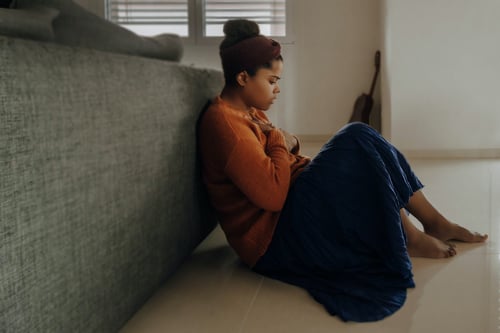The American Psychiatric Association provides a wealth of information on mental health disparities in diverse populations. In particular, you’ll find some harrowing statistics about mental illness in the African American community, including:
- African Americans often receive poorer quality of care and lack access to culturally competent care
- Only one-in-three African Americans who need mental health care receives it
- One study found that physicians were 23% more verbally dominant, and engaged in 33% less patient-centered communication with African American patients than with white patients
The stigma associated with mental illness, the lack of providers from diverse racial/ethnic backgrounds, and the lack of knowledge regarding available treatments, among many other barriers, prevent African Americans and other minoritized groups from accessing and receiving quality care. The COVID-19 crisis has further complicated matters, amplifying socio-economic pressures and health risks that can put African Americans at greater risk for a host of mental health issues.
Clearly, more needs to be done to increase awareness and better serve minority populations.

Bebe Moore Campbell National Minority Mental Health Awareness Month
Late American author Bebe Moore Campbell was a champion of mental health who made a monumental impact in the Black community and other underrepresented communities. Among her many accomplishments, she founded NAMI-Inglewood to enable minorities to safely talk about mental health concerns. A few short years following her passing from brain cancer, Congress formally recognized Bebe Moore Campbell National Minority Mental Health Awareness Month and is celebrated annually in July.
Micaiah E. Thomas Memorial Fund
In 2021, as COVID-19 and a multitude of other stressors continue to impact daily life, National Minority Mental Health Awareness Month is more important now than ever. evolvedMD wanted to bring to light a recent story that highlights the importance of bringing awareness to the unique struggles that minority communities face regarding mental illness in the United States.
Micaiah Thomas, a 24-year-old graduate from Arizona State University, died by suicide on July 15, 2021, after struggling with mental health issues. Together with the Arizona Community Foundation, the family has established the Micaiah Thomas Memorial Fund to raise further awareness in the Black community and reduce the stigma associated with mental illness.
As an Arizona-based national leader in the integration of behavioral health in modern primary care, evolvedMD is proud to make a contribution to this fund and support its mission. In addition, we’d like to share with you a collection of critical resources provided by the U.S. Department of Mental Health and Human Services Office of Minority Health to help better serve minority communities struggling with mental illness. On its resources page, you’ll find:
- Coping with COVID-19 resources
- LGBTQIA+ and mental health resources
- Substance use resources
- Trauma and violence resources
- And more
You can also find mental health resources for Black, Indigenous, and People of Color on Mental Health America's website.
If you’d like to donate to the Micaiah E. Thomas Memorial Fund to help reduce stigma and increase access to quality mental health services for minorities, we encourage you to do so at the link below.
Donate to the Micaiah E. Thomas Memorial Fund here.